South Sudan: How school meals encourage girls to stay in school
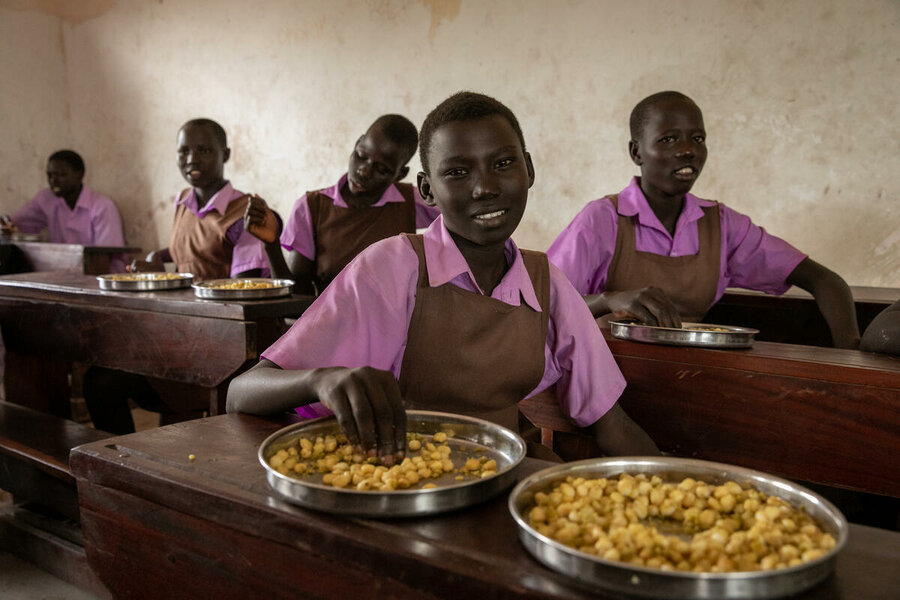
The day starts early at the Grace community school in Torit in the Eastern Equatoria region of South Sudan. At 6:30 am, well before students arrive, teachers and cooks are rushing around, preparing for the day.
In the school kitchen a fire is lit to prep for lunch. Even though it’s still early, the grains and pulses will cook slowly through the morning with cooks stirring the huge pots containing enough for the 403 lunches that will be served.
From 7:30 am, the happy chatter of students builds as the children arrive.
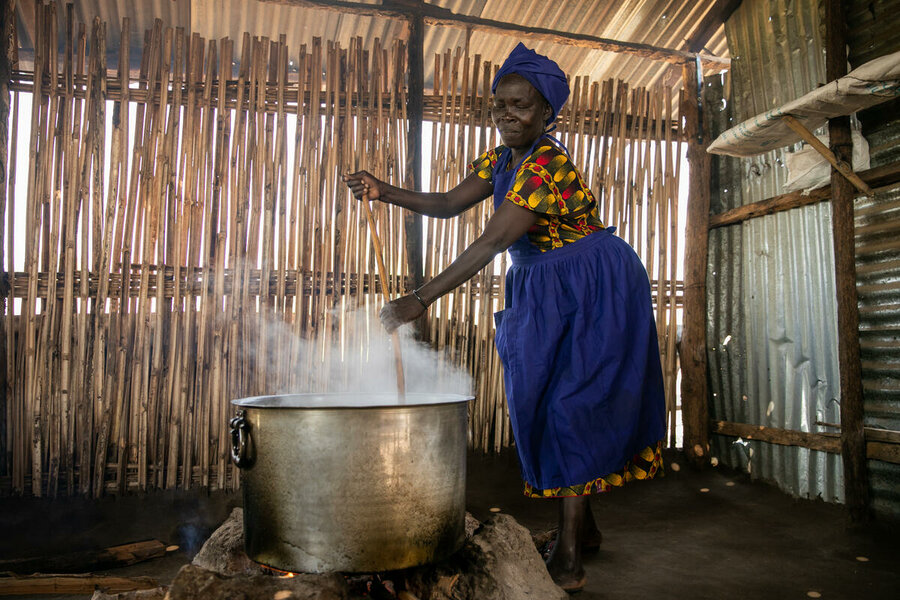
Jennifer, who is in her late teens, is in her final year of primary school with grand ambitions to work in healthcare, preferably as a midwife so she can help mothers.
“My favourite subject is science. I really like the teacher and I think that’s why I want to continue in that field,” she says.
Waking up each morning and attending class, as Jennifer does, is something many in the world take for granted. But here in South Sudan, every day in attendance is a victory.
The country has one of the lowest literacy rates in the world with only one-third of people able to read and 2.8 million children out of school.
And the global food crisis is being felt sharply here. The cost of a food basket is up 70 percent in Torit compared to prices before the war in Ukraine. Some staples, such as maize and red beans, are up 140 percent.
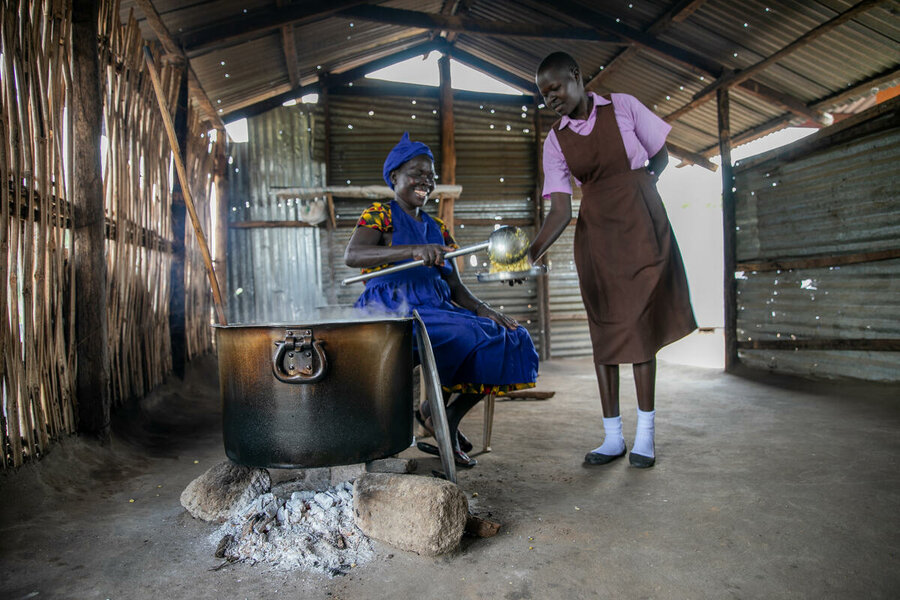
Families are also struggling with the effects of the climate crisis as crops are devastated by floods and drought, further driving up food prices and limiting coping mechanisms available to families.
Ongoing conflict in some parts of the country also makes sending children to school tricky and the dropout rate for education is high.
Girls are especially at risk of not finishing their education. Many are married off, aged as young as 14, and expected to have children soon after. Then they drop out of school.
In 2018, more than 156,000 girls were enrolled in the first year of school but just over 5,000 were enrolled in the final year. At the same time, 40 percent of girls are married before the age of 18 in South Sudan, according to a 2020 report.
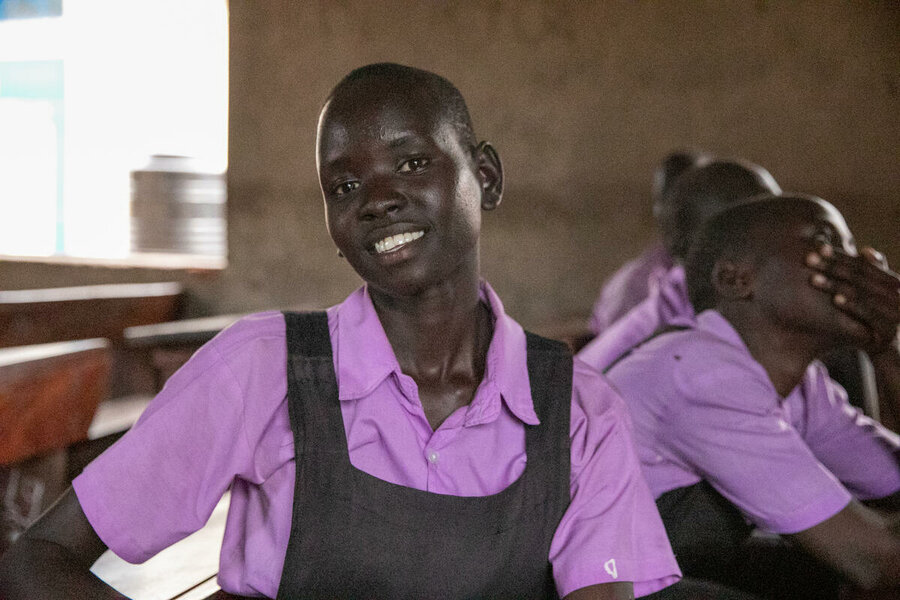
Jennifer refuses to become a statistic.
“I don’t see any benefits with early marriage,” she says. “Education is important to understand what is best for your family and not falling for tricks believing in superstitions. Many families have problems because the parents are not educated, and they don’t how to help their children later.”
A key ingredient to keeping students in school is the school lunch that’s provided through WFP as part of a joint World Food Programme-UNICEF project in urban areas of South Sudan to improve resilience, school attendance, and nutrition.
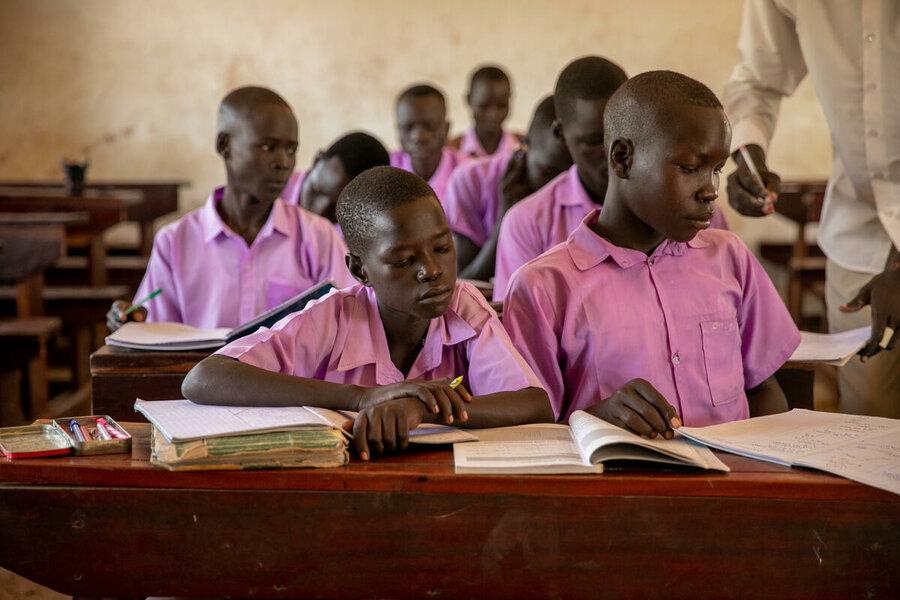
For many students, this single meal provides a lifeline. Without it their lives would be vastly different. The lunch is often the only nutritious meal students receive each day and provides incentive for parents to send their children to school. For other students, it also takes pressure off their home life so they can focus on their studies.
James, who is also in his first year of adulthood, is another student at the school.
“I lost my father, and my family doesn’t have a lot of money,” he says. “So I work as a boda boda (motorcycle) driver to pay for my education and support my family.”

Receiving lunch at school and knowing his siblings get fed too means there is one less meal for James to worry about each day. It gives him space to plan for his future.
“I’d like to be a doctor to support my community because in South Sudan many people are suffering because of inadequate health services,” he says.
For such ambitious students, receiving this support is invaluable and will have a ripple effect, providing positive contributions for their immediate family and community.
These school meals are made possible thanks to funding from KfW, the German Development Bank, which has provided resources to WFP and UNICEF to jointly support 550,000 people in urban centres of South Sudan for four years. WFP continues to provide school meals, nutrition assistance, and resilience activities.
